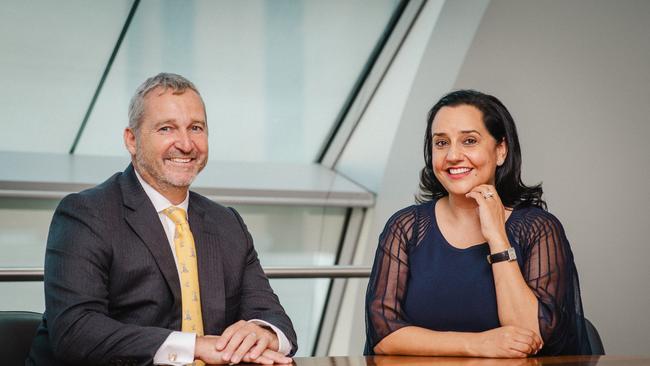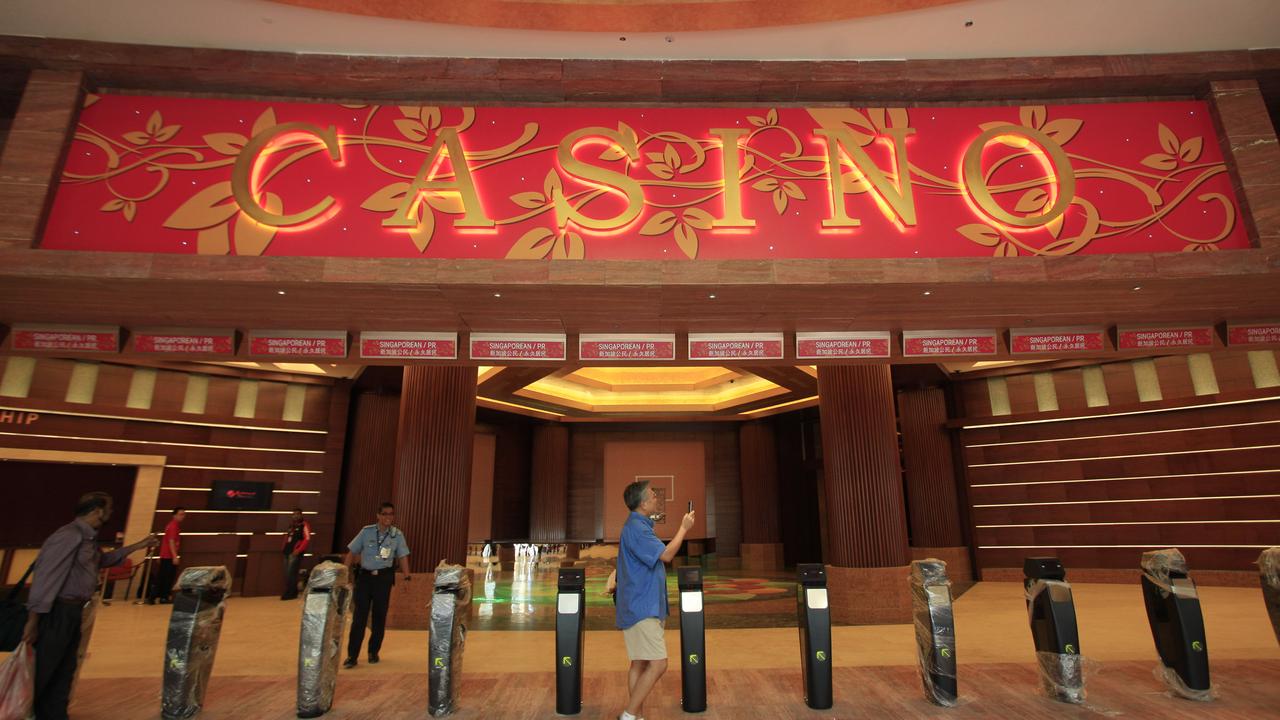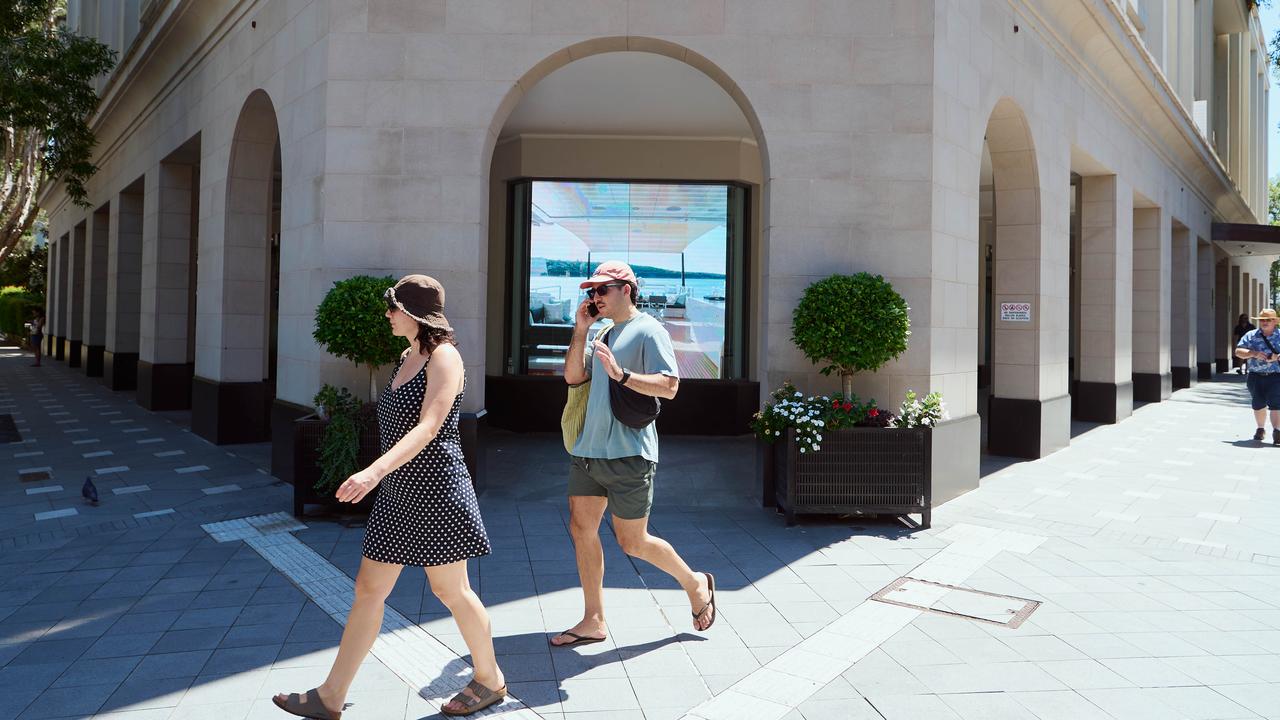Can Magellan’s new chief executive, Sophia Rahmani, lead where others have failed?
Many question why Sophia Rahmani has left the quiet life to try to turn around fallen market darling Magellan: A $5.75m pay cheque and track record may provide answers.

Business
Don't miss out on the headlines from Business. Followed categories will be added to My News.
Sophia Rahmani has a $5.75m pay packet to explain her decision to leave the quiet family controlled Maple-Brown Abbott and jump into the fire – taking on high-profile basket case fund manager Magellan Financial Group.
Magellan’s downward spiral over the past three years has been extraordinary. The firm’s funds under management have slumped to a third of their $116bn heights, its shares have fallen further, and its revered co-founder Hamish Douglass walked out the door under controversy.
Rahmani will now step in as the fourth chief executive in three years to try stem the outflow of funds.
She is a known quantity to Andrew Formica, who joined the Magellan board last year as chairman, and promptly gave former boss David George the boot. On Thursday he appointed Ms Rahmani, who worked for him when he ran Janus Henderson in London.
Fellow Janus Henderson alumnus and now CEO of rival Perpetual Asset Management Rob Adams believes she “has got the wherewithal” to right the ship at Magellan.
“She is a highly intelligent person, very industry aware and extremely capable,” says Adams, who was her direct boss at Henderson (himself reporting into Formica) for five years.
Asked about her rationale for taking the role, he said: “This is about wanting to further your career and have new experiences and add value in different ways.”
It could also be about money. Rahmani will start in May running Magellan Asset Management (MAM), and then step up to run the entire company within 12 months, with the stepping stone approach taken to appease investors fed up by the revolving door at the top.
She will earn $4.05m at MAM including a sign-on bonus and money lost from her previous role, plus an extra $1.7m in short and long term incentives, with no set timetable for those. The entire package will be reassessed again when she becomes CEO.
It’s a massive payout if she hits her performance targets and possibly explains why Rahmani – who was not currently available to interview – decided to leave her past role of four years running the out-of-the-spotlight Maple-Brown Abbott for the harsh glare of Magellan.
Adams thinks she can manage that too.
“The industry is difficult right now,” says Adams. “We’ve got the combination of the headwinds in the industry, along with public market focus which is really challenging for anybody, and I think she will take all that in stride.”
Active fund managers are seeing massive outflows of funds as investors turn to cheaper exchange-traded products. Many are turning to acquisitions to spread their fees across higher volumes, though as Adams has discovered as Perpetual CEO, this too comes with challenges as key stockpickers and investors won’t necessarily stick around post-takeover.
Magellan is on the hunt for acquisitions, and he credits Rahmani with being “one of the most senior people involved” in taking that same approach building out Janus Henderson globally.
“In terms of running an asset management business and dealing with personalities and dealing with the markets and clients, she’s very adept,” says Adams.
At Magellan she needs to shift the perception that both management and strategies have walked out the door. The company was seen as largely a one-man show under Douglass, who founded the firm and ran its in-house investment strategy. Now it’s looking to become a basket of boutiques. It’s a massive change and she will need to bring staff along on the journey.
Portfolio manager Dania Zinurova from Wilson Asset Management has known her for over a decade and is also confident she is up to the task, pointing to the transformations of both Henderson and Maple-Brown Abbott during her tenure.
“Magellan needs to go through a transformation across the business areas and she is a great person to take it to the next level,” says Zinurova, adding that the appointment of Rahmani changes her risk assessment of Magellan from “red/ yellow to green”.
The reset appears already under way before Rahmani even gets to her desk, thanks to the arrival of Formica.
On Thursday Magellan posted a 5 per cent drop in adjusted first half profit to $93.5m, and as of January 31 funds under management sat at $36.3bn – less than half of the figure two years prior – but slightly up on the previous month.
Formica is credited with the potential stabilisation of FUM. He joined Magellan after many years in London, first with Henderson and then as CEO of the £55.3bn Jupiter Fund Management. He resigned suddenly, saying the pandemic lockdowns had made him reassess his priorities.
Having someone with deep market experience has bought Magellan time to execute on its strategy. Formica’s move to erase staff loans for stock purchased back when the only way for Magellan seemed up has calmed frazzled nerves within the firm.
“We are glad they are making the right steps to turn things around,” says Steven Le, analyst at Morningstar, which retained its “average” rating on the firm but welcomed the appointment of Rahmani. “They are taking a new direction by going down this house of boutiques business model. It’s quite a pivot from their previous business model where their strategies were all internally managed,” says Le. “but in terms of regaining ground, while I would never say never, it is a significant task for them to get back to where they were.”
But there’s some scepticism.
“Formica’s got a good reputation and they needed to buy his gravitas but … if he set up with a clean sheet of paper a new fund today, would he have all these billions of dollars backing him? No chance in the world,” quipped one high-profile investor.
Originally published as Can Magellan’s new chief executive, Sophia Rahmani, lead where others have failed?





